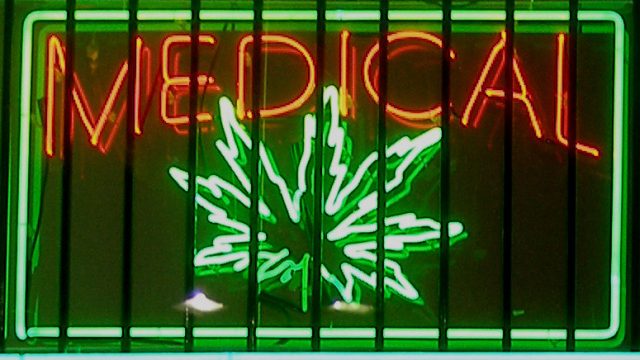Audio: ND Medical Marijuana Program Director Says Expected Length of Implementation Is About Average

The North Dakota Department of Health is estimating that medical marijuana won’t be available in North Dakota for another 11-13 months.
Voters in the state approved medical marijuana on the ballot a year ago, though the ballot measure they cast their ballots for was so flawed it didn’t actually decriminalize medical marijuana. That forced the Legislature to step in, and their bill became active in April.
That was about seven months ago, and state officials are saying it could still be another year before medical marijuana is available. That makes some unhappy. “We’re frustrated by the process,” Riley Ray Morgan, who led the ballot measure effort, told reporter John Hageman. “It’s just more of the same delay, delay, delay, it seems like.”
One could argue that if Morgan’s group had done a better job with their ballot measure we’d be further along in this process, but that’s beside the point. Is the State of North Dakota dragging its feet in implementing this policy?
[mks_pullquote align=”right” width=”300″ size=”24″ bg_color=”#ffffff” txt_color=”#000000″]”Most states take right around two years,” he told me, adding that “each state is unique.”[/mks_pullquote]
Jason Wahl, the medical marijuana program director for the North Dakota Department of Health, says no.
“There is a process the state needs to follow,” he told me. He said proposed rules have been filed with Legislative Council, but now those rules need to be scrutinized through a series of public hearings and get approval from Attorney General Wayne Stenehjem’s office.
And then there’s the federal government. Medical marijuana policy “needs to be implemented in a manner that is in compliance with the federal Cole letter,” Wahl told me.
He’s referring to the Cole memo, which was authored by Obama-era Deputy Attorney General James Cole. This provided guidance to the states on how to implement legalization of marijuana without running afoul of federal authorities who follow federal law which still classifies marijuana as an illegal drug.
Wahl said the state has to ensure that its policies properly protect against sales to children, the infiltration of criminal gangs into state-sanctioned marijuana operations, the use of state marijuana operations to traffick in other drugs, and the flow of North Dakota marijuana across state lines.
As for how long all this is taking, Wahl says North Dakota is on track to be about average. “Most states take right around two years,” he told me, adding that “each state is unique.”
Here’s the full audio of our interview:
[fcc_jw_podcast key=”F0H7jXhV”]




